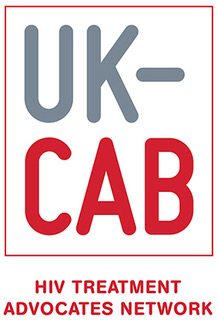7. HIV across the life course
This section looks at the impact of HIV at different times in someone’s life. Separate Standards exist for children living with HIV. These are produced by the Children’s HIV Association (CHIVA) and are not included here.
7a. Young adults and adolescents living with HIV
Adolescents are defined as aged from 10 to 19 years. Young adults are between 20 and 24 years.
The transition from child to adult HIV services happens at the same time as the huge change from being a child and adolescent to becoming an adult. All factors that can impact on a young person’s sense of wellbeing should be taken into account by care services.
Your move from children’s to adult services should be made easy. This is called your ‘transition of care’. It needs to be planned and focused with your individual needs at the centre of your care. A slow transition can help you get to know your new doctors and nurses before they take over your HIV care.
As a young person, you’ll learn about sex and relationships. When you are living with HIV, there can be extra challenges. Support should be given when you want to tell a new girlfriend or boyfriend about your HIV. You should be given advice and help when beginning sexual relationships. Doctors, healthcare workers and specialist nurses should give you information and support when you start to think about beginning sexual relationships. Help can also be provided by other young people living with HIV. This is called peer support. Many young people find peer support easier around sex issues than talking to adult professionals.
Your clinic should discuss and advise you about sexual health. This should include information on contraception and prevention of sexually transmitted infections (STIs). You should be told about the use of condoms to prevent STIs. This should happen at least once a year, and more often if needed. Some HIV treatment and types of contraception can interact. You can discuss your preferred contraception methods with your HIV doctor to make sure your contraception is effective and doesn’t interact with your HIV treatment.
If you are having sex, you should have regular sexual health check-ups. These may be carried out at your HIV clinic, or you should be told where else to go for them if your clinic cannot do this. You should also be given the full facts about other ways to prevent passing on HIV. This include Undetectable equals Untransmittable (U=U), treatment as prevention (TasP) and pre-exposure prophylaxis (PrEP). These are all explained in Standard 1b (Prevention). However, neither U=U nor PrEP protects against other STIs. Condom use is important to protect against both other STIs and pregnancy.
Adolescence makes many people anxious or confused. This is a normal part of being a teenager. During this time, it’s important to keep taking your HIV treatment. This is not only best for your own health, but also for that of any sexual partners. If you have difficulty taking your treatment, you can talk to your doctor about it. You should be given advice and support to help you, and you may be able to switch to something that is easier to take.
Key messages
Transition of care from children’s to adult services should be gradual and planned. You should get support from both clinics and you should meet your doctors in the adult clinic before you transfer. A care summary of your individual medical and social healthcare needs should be included as part of your transition.
Your HIV clinic should be friendly and helpful. Appointment times should try to fit around your education and work hours. You should feel able to give feedback to the clinic about your care. Access to mental health support and peer support should be available.
You have the right to a full and healthy sex life. Information and advice about contraception should be provided. Regular sexual health check-ups should include advice about pregnancy and STIs. It should include information about U=U, TasP, and PrEP.
If you find taking your HIV medication difficult, let your healthcare team know so that they can give advice and support. This may include peer support, and you should be shown how to access this if you want it. You can also ask whether there are other types of HIV medication that might be easier for you to take.
